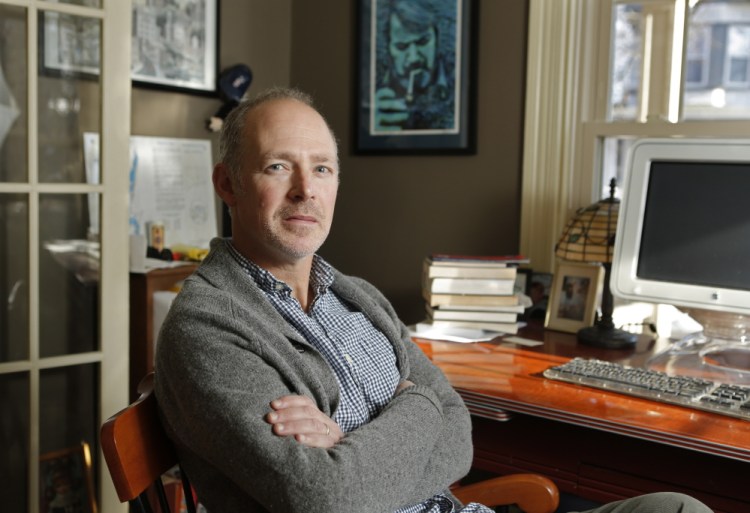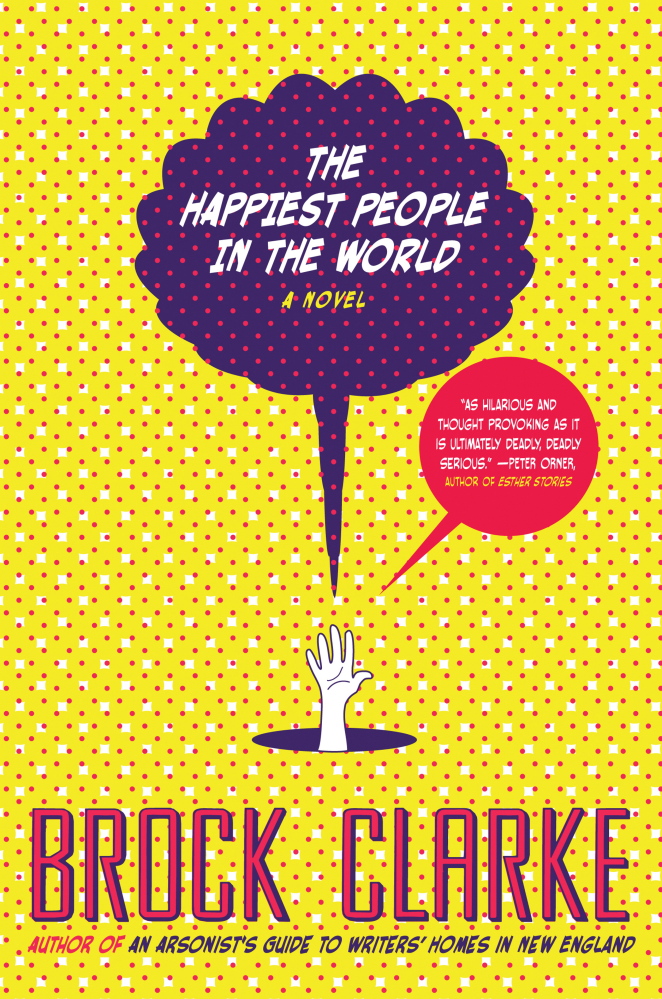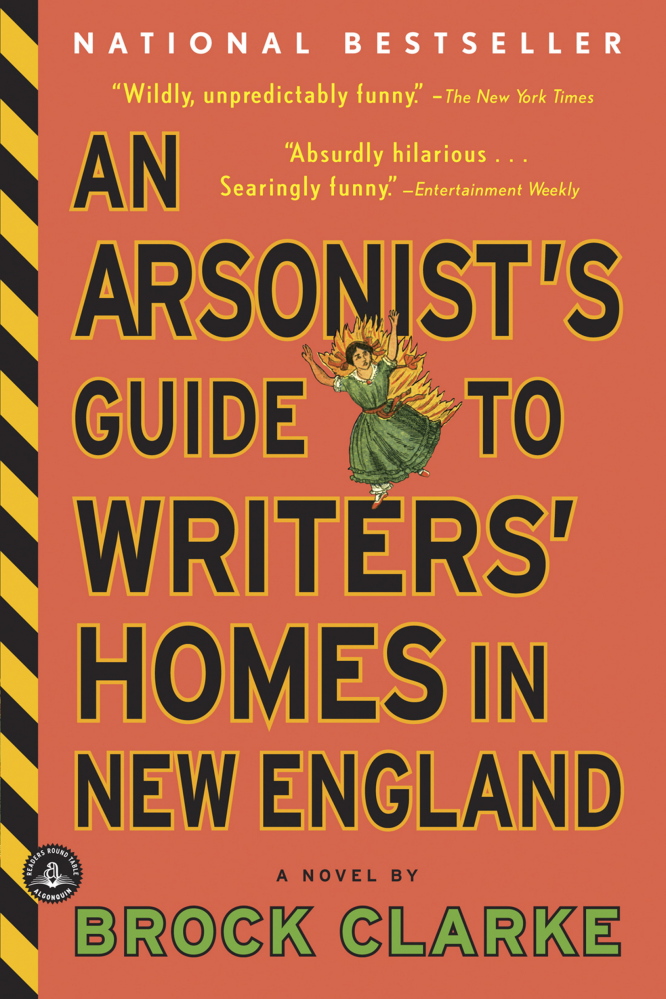Brock Clarke admits to snickering when the Danes found themselves on the receiving end of Molotov cocktails.
This was a decade or so ago, when a Danish newspaper came under attack for publishing a series of cartoons depicting the Prophet Muhammad in an unflattering light. Until then, Denmark was deemed home of the happiest people in the world, and that distinction was not the concoction of the Danish tourism council. It was based on studies and surveys.
And then the bombs started flying.
Clarke’s reaction?
“Well, not so happy now, are you?”
That incident, as well as the brief time he and his wife lived in Copenhagen, spawned his latest novel, the appropriately titled “The Happiest People in the World.” It has received a lot of attention in the national book press and has been a local bestseller in the month since its release. A week ago, Clarke’s cleverly funny novel was the subject of a glowing review in the Books of the Times column in The New York Times.
The story is about Jens Baedrup, who draws cartoons for a Danish newspaper and is forced to flee his native country because of the Muhammad controversy. He lands in upstate New York, which Clarke describes as home of the unhappiest people in the world – and he should know, because he grew up there.
An eternal optimist, Jens has a new name, an entirely new identity and a new life in a place where people are miserable.
The novel picks up from there.
A Portland resident for five years, Clarke teaches fiction writing and literature at Bowdoin College in Brunswick. Here’s what you need to know about him:
He’s is 46 years old, was born in Massachusetts and is a Red Sox fan.
He lives in Portland with his wife and two children.
His previous novel, “An Arsonist’s Guide to Writers’ Homes in New England,” also falls into the category of literary irreverence. It’s about a guy who burns down Emily Dickinson’s home in Amherst, Massachusetts, goes to jail for his crime and becomes a cult hero. Admirers write to him, suggesting the homes of other New England writers he should reduce to embers. He refuses, and when someone else begins burning them down he has to find out who’s trying to frame him.
Clarke’s father and grandfather both taught college English, as does one of his brothers. When a younger brother, who studied fine art in college, got a job with a major financial services company, his parents worried about his well-being. Some of our conversation, over coffee at Speckled Ax:
On how his family shaped him: “I come from a family that reads books. I know people who have multiple talents. I kind of pity them, because it must be hard to choose which one they’re going to follow. I’ve only been decent at one thing. I can watch baseball like a champ, but beyond that I can’t do anything else except write books and teach them.”
Why Denmark: “I never thought about Denmark one way or another. It was not a place I wanted to go, it was not a place I didn’t want to go to. It wasn’t on my radar. But my wife got a job there, so we moved to Copenhagen and I totally fell in love with the place. I usually hate people, but I really liked these people. They seemed unassuming. They weren’t showy in their happiness. They were just really happy. They had everything they wanted.”
On the process of writing: “It’s painful. It’s exciting when it finally works. I loved writing the first 40 pages and then I got stuck, as I always do. It’s misery for the next six or eight months. I keep banging away and banging away and reconsidering it and trying to figure out where my mistake was and trying to rectify it. And then it’s OK after that. A lot of pleasure, a lot of pain and a lot of relief at the end. I’m usually really good at openings, really bad at middles and pretty good at endings.”
Is this a million-dollar book? “I hope so. But I write strange books. I hope that people take a long enough look to figure out there’s a purpose behind the strangeness, and recognize it for that. This is true for every single book I’ve written: Someone out there has said this book should have no chance of being decent, and that it is is something of a miracle. That’s the kind of person I am writing the book for, someone who likes these unlikely books. I am hoping there are millions of them.”
Living in Portland: “What I like about Portland and what I don’t like about Portland are the same thing. There are a lot of writers here. Luckily, I get along with most of them, I think. But every time a writer moves to town, which is about every five minutes, it gets a little more crowded. I like different kinds of people, and writers are only one of them. It’s a good thing to have a bunch of other kinds of people around to keep you from not totally naval gazing. But I also like that Portland is the kind of place that people like to come to and write. Because that means when they want to come and write, they only do that five hours a day, and then they want to eat and drink.”
Bob Keyes can be contacted at 791-6457 or:
Twitter: pphbkeyes
Send questions/comments to the editors.






Success. Please wait for the page to reload. If the page does not reload within 5 seconds, please refresh the page.
Enter your email and password to access comments.
Hi, to comment on stories you must . This profile is in addition to your subscription and website login.
Already have a commenting profile? .
Invalid username/password.
Please check your email to confirm and complete your registration.
Only subscribers are eligible to post comments. Please subscribe or login first for digital access. Here’s why.
Use the form below to reset your password. When you've submitted your account email, we will send an email with a reset code.